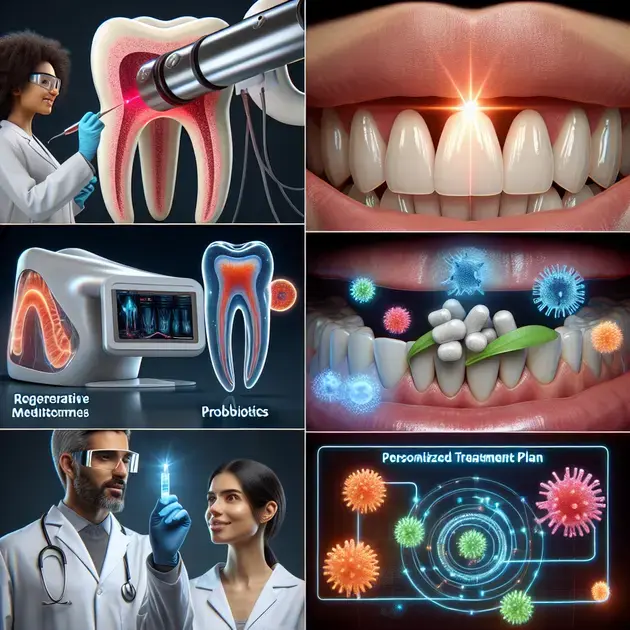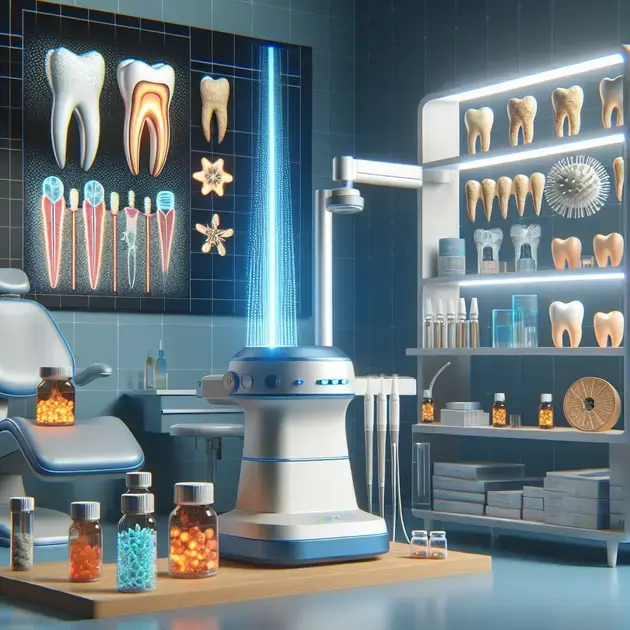When it comes to managing periodontal health, understanding medication for periodontitis plays a crucial role in the treatment process. Periodontitis is a severe gum infection that damages the soft tissue and destroys the bone that supports your teeth. It is essential to be informed about the various medications available to effectively combat this condition.
With advancements in dental research and technology, there are now more options than ever for managing periodontitis through medication. From antimicrobial mouth rinses to antibiotics and enzyme suppressants, each medication serves a specific purpose in controlling the progression of periodontal disease and maintaining oral health.

Understanding the Role of Medication in Periodontal Health
Medication plays a crucial role in managing periodontal health by assisting in the treatment and prevention of gum disease. Understanding how medication can impact periodontitis is essential for maintaining oral health. One important aspect is the use of antibiotics to combat bacterial infections that cause gum disease. Prescribed antibiotics such as doxycycline can help reduce inflammation and control the growth of harmful bacteria in the gums.
Another type of medication commonly used in periodontal treatment is antimicrobial mouth rinses. These rinses, like chlorhexidine mouthwash, can help reduce plaque and bacteria in the mouth, promoting gum health. It is important to follow the instructions provided by your dentist or healthcare provider when using these medications to ensure effectiveness.
Additionally, anti-inflammatory drugs may be prescribed to manage pain and swelling associated with periodontitis. Nonsteroidal anti-inflammatory drugs (NSAIDs) such as ibuprofen can help alleviate discomfort and reduce inflammation in the gums. These medications can be helpful in conjunction with other periodontal treatments.
It is important for individuals with periodontal disease to work closely with their dental professionals to determine the most appropriate medication regimen for their specific condition. By understanding the role of medication in periodontal health, patients can take proactive steps towards improving their oral health and managing gum disease effectively.
Exploring the Various Medication Options for Periodontitis
When exploring medication options for periodontitis, individuals have several choices available to them. One common medication prescribed for gum disease is a subgingival antibiotic, such as Arestin. This antibiotic is placed directly in the gum pockets to target bacteria and reduce inflammation. Understanding how to properly administer this medication is essential for its effectiveness.
In more severe cases of periodontitis, systemic antibiotics may be prescribed to address widespread infection. Medications like amoxicillin or metronidazole can help combat aggressive bacteria in the mouth. It is important to follow the prescribed dosage and duration to ensure the best outcome.
For individuals looking for natural alternatives, essential oils such as tea tree oil have antimicrobial properties that can aid in gum health. Products like tea tree oil mouthwash or toothpaste can be beneficial in reducing bacteria and inflammation in the gums.
Before choosing a medication option for periodontitis, it is crucial to consult with a dental professional to assess the severity of the condition and determine the most appropriate treatment plan. By exploring the various medication options available, individuals can work towards improving their oral health and managing periodontal disease effectively.
The Importance of Informed Decision-Making for Managing Periodontitis
When it comes to managing periodontitis, making informed decisions about your treatment plan is vital for long-term oral health. Understanding the implications of medication choices and their impact on gum disease is essential. Before starting any medication regimen, it is important to discuss your options with a dental professional.
Being informed about the potential side effects and benefits of different medications can help you make the best choice for managing your periodontitis. Ask your dentist about the risks and benefits of each medication prescribed, and ensure you understand how to properly use them for optimal results.
In addition to medication, lifestyle changes such as a healthy diet, regular brushing and flossing, and routine dental visits are essential for managing periodontitis. Combining medication with good oral hygiene practices can significantly improve gum health and prevent further progression of gum disease.
By actively participating in the decision-making process regarding your periodontal treatment, you can take control of your oral health and work towards a healthier smile. Informed decision-making, in collaboration with your dental team, is key to effectively managing periodontitis and achieving long-lasting results.

**Exploring Innovative Approaches to Periodontitis Management**
Periodontitis management is a crucial aspect of maintaining oral health, as this condition can lead to severe consequences if left untreated. In recent years, innovative approaches have emerged to improve the outcomes of periodontitis treatment. One such approach is the use of laser therapy, which has shown promising results in reducing inflammation and bacteria in the periodontal pockets. By targeting the affected areas with laser light, dentists can effectively remove diseased tissue and promote the regeneration of healthy gum tissue.
Another innovative approach to periodontitis management is the use of probiotics. Research has suggested that certain beneficial bacteria can help balance the oral microbiome and reduce the growth of harmful bacteria that contribute to periodontal disease. By incorporating probiotics into oral hygiene routines, patients may experience a decrease in inflammation and improved gum health.
Furthermore, regenerative techniques, such as tissue engineering and growth factors, offer new possibilities for enhancing periodontitis management. These techniques aim to stimulate the body’s natural healing processes and promote the regeneration of damaged tissues. By harnessing the power of regenerative medicine, dentists can support periodontal tissue repair and improve treatment outcomes.
In addition to these approaches, personalized treatment plans based on genetic factors and risk assessments are becoming more common in periodontitis management. By analyzing an individual’s genetic predisposition and overall health, dentists can tailor treatment strategies to address specific needs and optimize outcomes. This personalized approach may lead to more effective and sustainable results in managing periodontitis.
Overall, exploring innovative approaches to periodontitis management is essential for advancing the field of periodontal health and improving patient care. By incorporating cutting-edge techniques and personalized strategies, dentists can enhance treatment outcomes and help patients maintain optimal oral health.
Conclusion
Exploring innovative approaches to periodontitis management unveils a new realm of possibilities for enhancing oral health care. Laser therapy emerges as a promising tool in reducing inflammation and eradicating harmful bacteria within the periodontal pockets. By precisely targeting affected areas with laser light, dentists can effectively eliminate diseased tissue and promote the regeneration of healthy gum tissue, leading to improved treatment outcomes.
Moreover, the integration of probiotics in periodontitis management presents a unique avenue for rebalancing the oral microbiome. Research suggests that certain beneficial bacteria can counteract the growth of harmful bacteria linked to periodontal disease. By incorporating probiotics into daily oral hygiene routines, patients stand to benefit from reduced inflammation and enhanced gum health, opening doors to a more holistic approach to periodontitis treatment.
Regenerative techniques, such as tissue engineering and growth factors, represent revolutionary strategies in augmenting periodontitis management. By leveraging these cutting-edge methodologies, dentists can stimulate the body’s natural healing mechanisms and facilitate the regeneration of damaged tissues. This approach not only supports periodontal tissue repair but also holds the potential to elevate treatment outcomes, ushering in a new era of precision medicine in oral health care.



